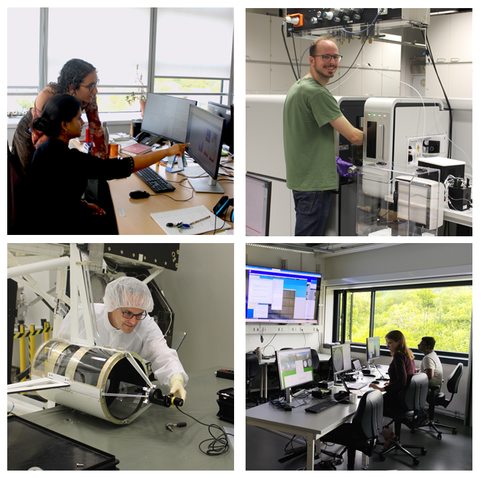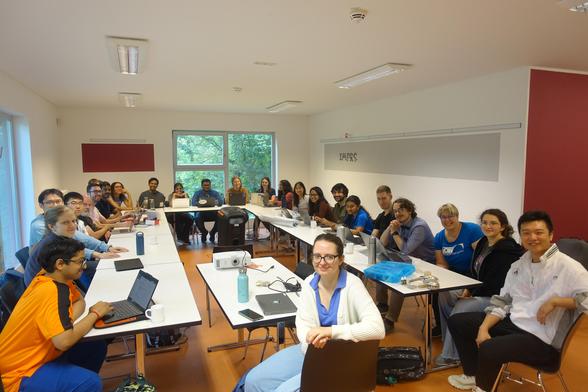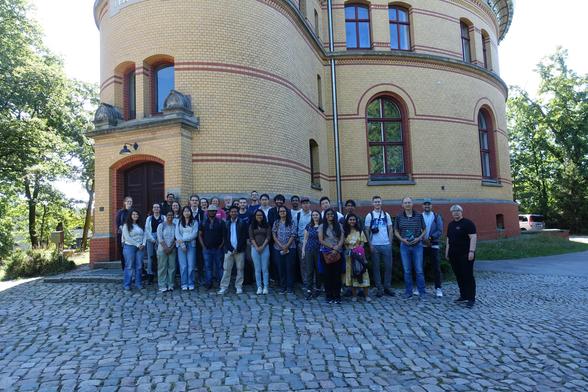2025-12-16 17:09:35
One of the things that made organizing a lot easier with the GDC was a thing called "GDC in a box." It was a zip file with all kinds of resources. There was a directory structure, templates for all kinds of things like meetings and paperwork you had to file (for legal reasons) and "read me" files.
We had all kinds of support. There were people you could talk to who had been there. There were people you could call to walk through legal paperwork (taxes). Centralized orgs are vulnerable and easy to infiltrate. They're easy for states to shut down. But there are benefits to org structures.
I think it's possible to have the type of support we had with the GDC, but without the politics of an org (even the IWW). I hope this most recent essay has some of the same properties. I hope that it makes building something new, something no one has really imagined before, easier.
This whole project is something a bit different. It's a collective vision and collective project, from the ground up. Some of it has felt like a brain dump, just getting things that have been swimming around in my head down somewhere. But I hope this feels more like an invitation.
Everything thus far written is all useless unless people do things with it. Only from that point does it become a thing that lives, a thing with its own consciousness that can't be controlled by any individual human.
Tech billionaire cultists want to bring a new era of humanity with AGI. That is definitely not possible with LLMs, and may not be possible at all. But there is a super intelligence that is possible, though it's been constrained by capitalism: collective human intelligence.
The grand vision of the tech dystopians is that of the ultimate slave that can then enslave all humans on their behalf. I think we can build a humanity that can liberate itself from their grasp, crush their vision, and build for itself a world in which people will never be enslaved again. Not only do I think it's possible, I think it's necessary. I think there are only two choices: collective liberation or death.
And that's what I plan to write about next time to wrap this whole project up. Today things often feel impossible. But people talked about the Middle Ages as though they were the end of the world, and then everything changed in unimaginable ways. Everything can, and will, change again.
"The profit motive often is in conflict with the aims of art. We live in capitalism. Its power seems inescapable. So did the divine right of kings."
2025-11-16 09:17:07
"For Levy and Newborn, the stakes were clear, and the title of the first chapter of the book says it all: “The Challenge is World Champion Kasparov”. Said chapter describes in detail the match between a first iteration of a chess supercomputer by IBM, the less well-known “Deep Thought”. It was a strong contender, having defeated quite a few grandmasters along the way (including the aforementioned Levy), but was no match for Kasparov in August 1989."
2025-11-14 13:58:20
Our university library has one of the cooler archival fonds around: the Syd Bolton Collection. It's comprised of almost 14,000 video games and hundreds of consoles and systems, along with over 5,000 issues of game magazines, hundreds of books and literature, peripherals, and related technology, materials, and documents. It is one of the largest collections of its kind in the world and the largest known in Canada.
2025-12-11 14:53:47
US lawmakers voice concerns about Venezuelan tanker seizure:
‘sounds a lot like the beginning of a war’
Senator Mark Warner of Virginia,
the top Democrat on the Senate intelligence committee, questioned how the US was able to seize an oil tanker off the coast of Venezuela on Wednesday
but “not a drug boat”
– referring to the suspected
drug-trafficking vessel that was the target of the 2 September double-tap strike.
Warner has been part of the choru…
2025-10-14 09:29:08
Leveraging Photometry for Deconfusion of Directly Imaged Multi-Planet Systems
Samantha N. Hasler, Leonid Pogorelyuk, Riley Fitzgerald, Kerri Cahoy, Rhonda Morgan
https://arxiv.org/abs/2510.09841
2025-10-06 19:45:31
Observation of nonaxisymmetric standard magnetorotational instability induced by a free-shear layer: #Planets Might Form When Dust “Wobbles” in Just the Right Way: https://eos.org/articles/planets-might-form-when-dust-wobbles-in-just-the-right-way - a liquid metal experiment has shown how magnetic rotational instability might allow dust to pool together in disks around young stars to form new worlds.
2025-12-10 20:28:18
400,000 years ago, early #Neanderthals gathered around a pit in what’s now a #Suffolk forest to spark the oldest known #fire created by human hands.
2025-10-02 07:17:11
2025-10-04 08:16:43
Who does this remind you of?
"Within political parties, the same logic has often reappeared: rally the membership around the leader by creating an “internal other” to be purged — an “other” supposedly conspiring against the very essence of the organisation, which is, in turn, embodied by the leader or ruling clique."
https://
2025-12-03 20:23:59
"Russian oligarch, Mikhail Fridman... [may] use the tribunal to challenge the sanctions the UK levied against him after the invasion of Ukraine. He has already started suing Luxembourg for this reason, demanding $16bn (£12.1bn): half that government’s annual revenue. Among the lawyers representing him there? Cherie Blair, wife of the former British prime minister"
#Kleptocrats<…







